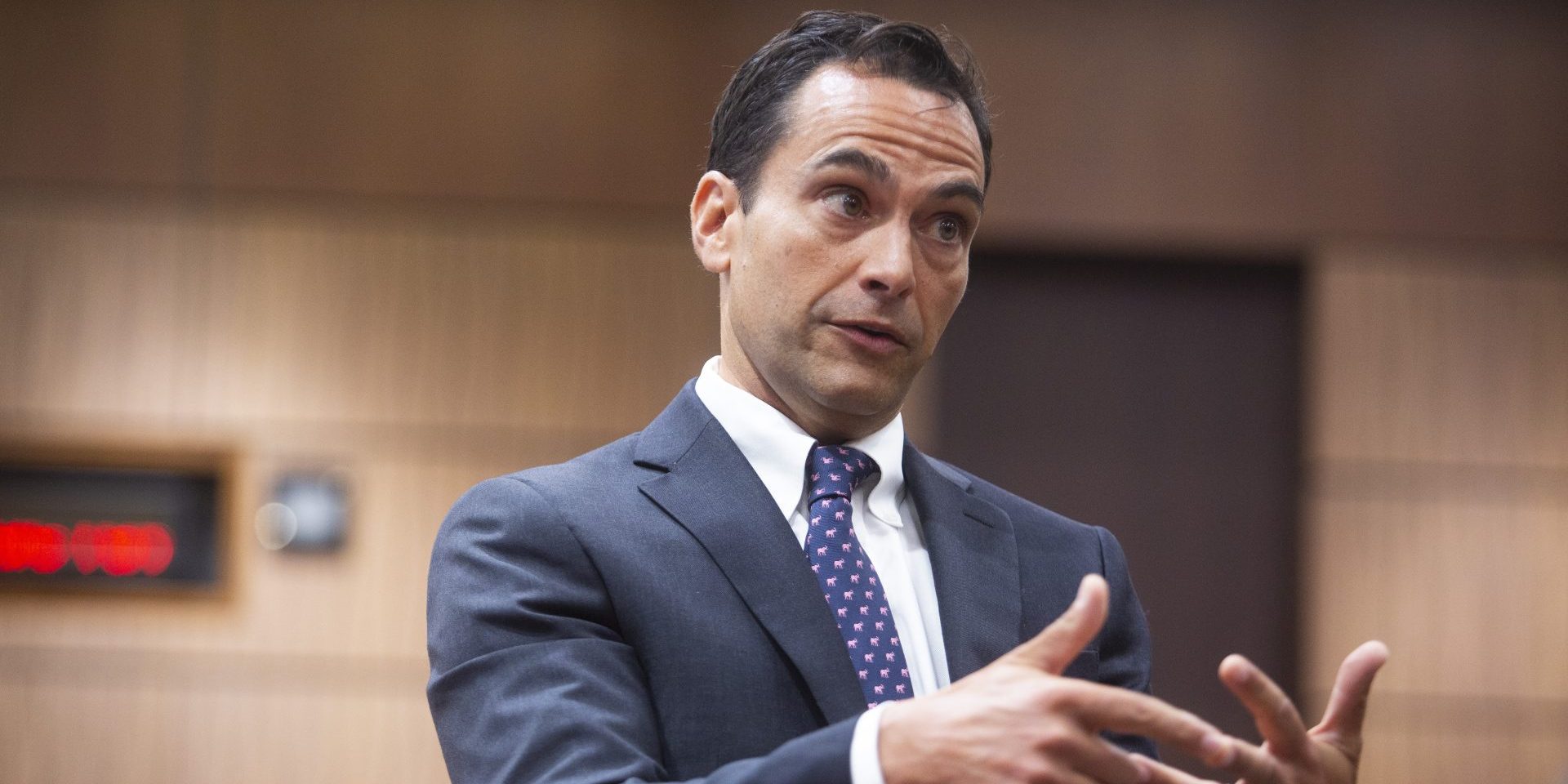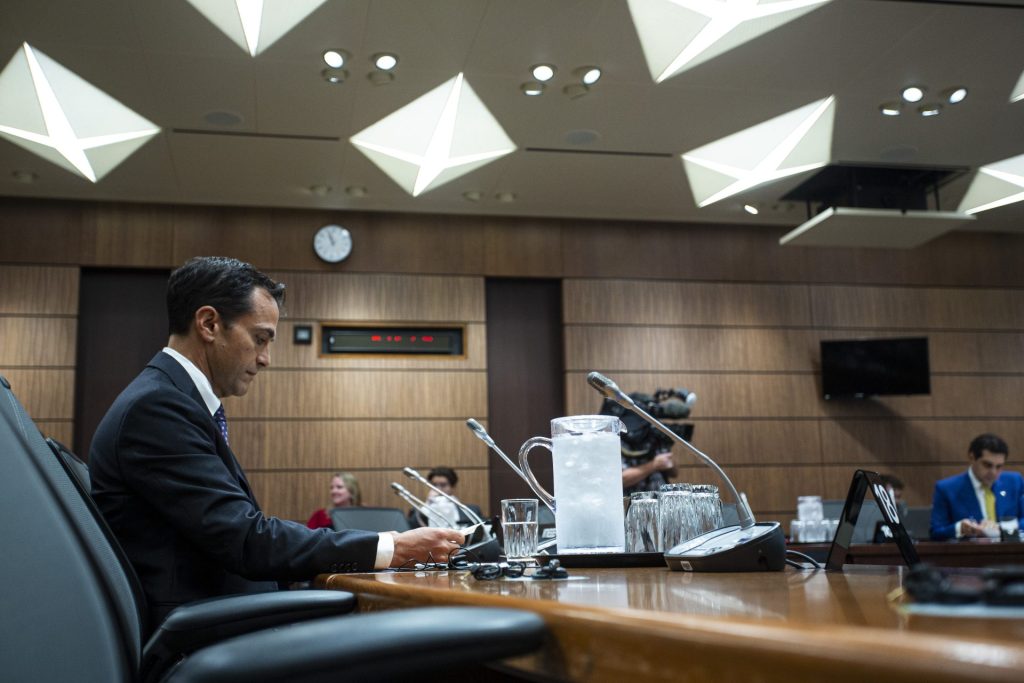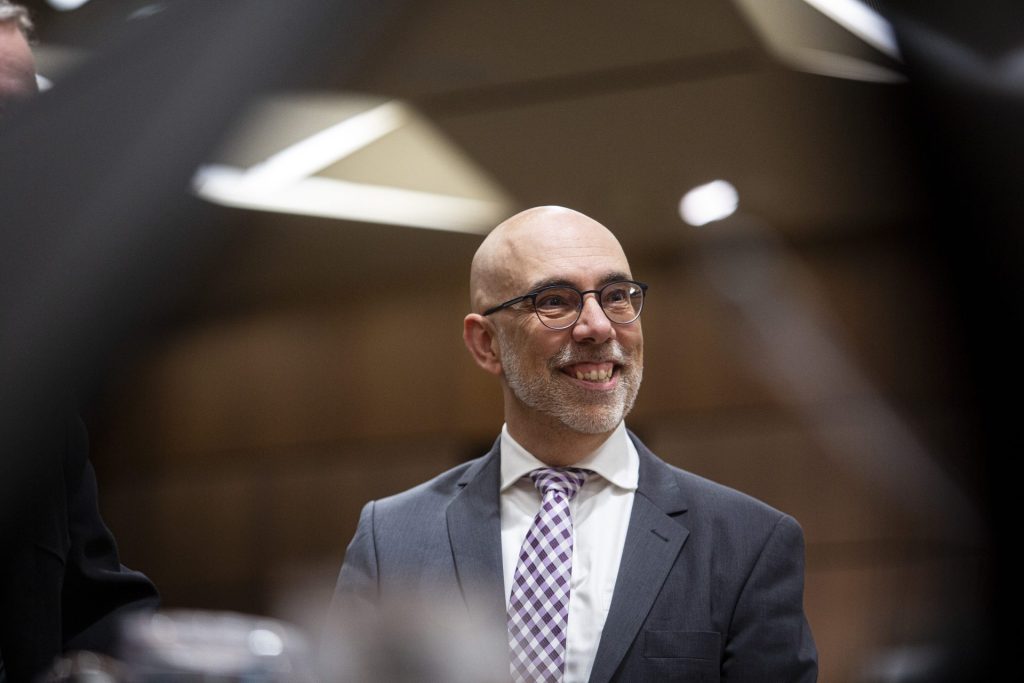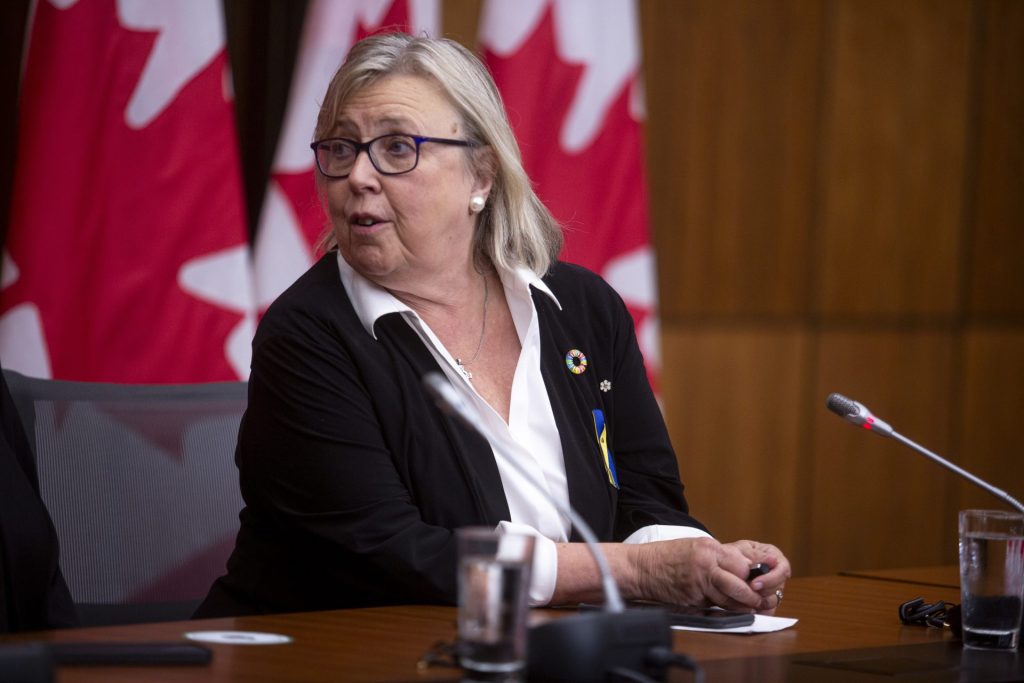‘It’s not right’: interim PBO calls for legislative changes to avoid repeating the circumstances of his hiring

Canada’s interim Parliamentary Budget Officer Jason Jacques says legislative changes are needed to prevent the government from repeating the way he was appointed to the watchdog post.
Jacques was notified that he would be offered the role just 72 hours before his predecessor Yves Giroux’s term was due to end on Sept. 2. The temporary appointment was announced on Sept. 2, with a start date of the next day.
In an interview with The Hill Times, he said he was “very surprised” to get a phone call from the Prime Minister’s Office (PMO) and the Privy Council Office (PCO), and expressed concern over the government leaving the appointment to the very last minute.
Giroux has said publicly that he was left in the dark about the government’s plans for his successor.
“I was very surprised that it was so tight because under legislation, effectively, our office ceases to exist without the Parliamentary Budget Officer,” said Jacques, who was the PBO’s director general of economic and fiscal analysis before taking the interim top job. He has previously worked for the PCO, Finance Canada, and the Bank of Canada.
He called for legislative amendments to ensure that any time there is a gap between two permanent appointments, there is a process to ensure the interim candidate is also approved by the other parties.
“As somebody who’s been on the Hill for 17 years, who really believes in democracy … I think it’s for the best that I took the job on an interim basis, but it’s not right,” Jacques said.
Under the law, the hiring of a permanent PBO must be approved by Parliament, as the office is a bipartisan entity tasked with providing an unbiased analysis of the country’s financial and economic situation. The Parliament of Canada Act does not create an office, but rather the parliamentary budget officer who then has the legal right to hire staff to support them in doing their job, Jacques highlighted.
The PBO post was first created in 2006 by then-prime minister Stephen Harper’s Conservative government, but 2017 amendments to the Parliament of Canada Act made the PBO an independent officer of Parliament.

Jacques said while he was “surprised” he made the cut, he was also “gratified” that posting somebody from within the office meant the government liked the work the PBO has done in the past.
While the PBO is formally appointed by the governor-in-council, it is the PCO and PMO that have to recommend and find candidates. The delay forced the two offices to make an appointment on an interim basis for six months, rather than permanently, which is the limit of what it could do without Parliament’s approval.
The PMO clarified in a statement to The Hill Times that Giroux’s term was set to expire before the return of Parliament, and therefore a permanent replacement could not be made without a gap in the appointment.
Naming Jacques in the interim, the PMO said, ensured it could “follow due process” and appoint someone to lead the office full-time “after the proper consultations are made.”
Jacques said he’s willing to stay on for a proper term as PBO after his six-month stint ends. But, he stressed that it was not up to him or even to the government to decide that, as approving the appointment is the prerogative of Parliament.

When stepping into Giroux’s shoes, Jacques said he made it clear to the PCO that he would be working in the same manner as his predecessor, and added the government was happy with that approach.
“They went on to say, ‘We want a strong PBO… Budget 2025 is going to be very important … and we want a strong PBO to be in a position where they can help parliamentarians unpack the budget.'”
The federal budget will be tabled on Nov. 4, and the supplementary estimates will follow, among the many other major items on the office’s list.
May agrees Parliament should be involved in interim appointments
Green Party Leader Elizabeth May (Saanich—Gulf Islands, B.C.) said she supports Jacques’ suggestion for a legislative amendment to ensure appointments aren’t made without Parliament’s consent.
“I think there should have been some kind of provision that when the Parliamentary Budget Officer is near the end of his or her term, and if it hasn’t been handled yet, there should be a default, automatic extension for six months while the process continues. There’s no harm that can come from making sure that the transition is smooth.”
Still, she is sympathetic to Prime Minister Mark Carney’s (Nepean, Ont.) predicament given the re-elected government had a lot on its plate after the April election.
“I imagine they’re still playing catch up. So I’ll give them the benefit of the doubt… It’s not the way it should be. You shouldn’t be asking someone with a 72 hours’ notice that you need to start as PBO,” she said.

“If this was a year from now, it would be shocking and unacceptable. Now, I am just prepared to face the reality, which I think most people in Ottawa have noticed, that they really aren’t fully aware of how to run [the Prime Minister’s Office],” she said.
“And the PMO, for that matter, is too big. It has too much power, but these are basic things that should get done.”
The Hill Times also reached out to the Conservatives and NDP for their views on how the government handled the PBO’s appointment, but did not receive a response by deadline.
Both the Senate Finance Committee and the the House Government Operations and Estimates Committee (OGGO) previously passed motions urging Giroux’s reappointment earlier this year.
During Jacques’ appearance before OGGO this week, Conservative MP Kelly McCauley (Edmonton West, Alta.) congratulated him, but said they were “disappointed” the government did not consider the will of the last committee.
New plans for PBO
Jacques told OGGO that though his office is exempt from Carney’s spending review, the PBO would voluntarily make an ongoing five-per-cent cut to its budget starting in 2026-27, which includes himself taking an immediate $50,000 reduction in his salary.
Jacques told The Hill Times he also plans to make some changes in the way work is delegated within the office. Analysts on his team, for example, will be stepping up to handle some of the office’s communications responsibilities, Jacques said.
“We lost Mr. Giroux … he is easily one of the most effective communicators when it comes to financial and economic information in both official languages,” he said.
“There’s no easy replacement, and I’m certainly not a replacement for him.”
Managers, too, he revealed, will be given more discretion to make decisions around projects, dealing with parliamentarians, and signing off on projects.
In that environment, Jacques said, there will be enough scrutiny of the work being published to avoid any mistakes.
Last year, Giroux was widely criticized after he admitted to an “inadvertent error” in his office’s calculations of the impact of consumer carbon tax—including carbon tax rebates—on people’s pockets. The team re-ran the numbers and found that the cost was less than it had earlier estimated.
Jacques said he wasn’t involved in that report, but if a similar situation were to arise again, he would follow the steps that Giroux took—which is to flag the error publicly, redo the calculations, invite representatives from the Congressional Budget Office in the United States and the Netherlands Bureau for Economic Policy Analysis to vet the work, and publish a revised report.
But given the scale of their work, Jacques said, mistakes could still happen, in theory.
“It’s not about the mistakes … as long as they’re not stupid, careless mistakes … it’s how you react to them,” he said. “You have to be transparent about it. I’m very comfortable about how we reacted to it.”
While he stopped short of confirming that the error in the consumer carbon tax report was the nail in Giroux’s coffin, he said people are “welcome to draw their own conclusions.”
“They want everything that Mr. Giroux would have otherwise done… But they don’t want Mr. Giroux for some reason. I don’t know.
“I don’t think the town is used to people saying, ‘I’m sorry, and we made a mistake.’
“The government makes mistakes every day of the week,” he said. “That guy [Giroux] lost his job because he apologized and confessed, and he owned up to the truth.”
A version of this piece first appeared in Politics This Morning, your go-to source for insider news, analysis, and updates on where all the key political players are that day. Get more insider coverage directly to your inbox from The Hill Times’ editor Peter Mazereeuw and reporter Riddhi Kachhela in this subscriber-only daily newsletter. Sign up here.
rkachhela@hilltimes.com
The Hill Times






 LICENSING
LICENSING PODCAST
PODCAST ALERTS
ALERTS













